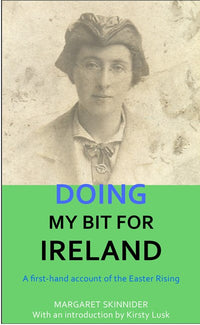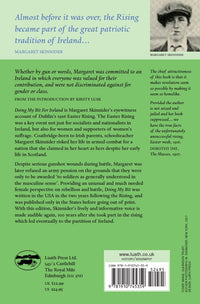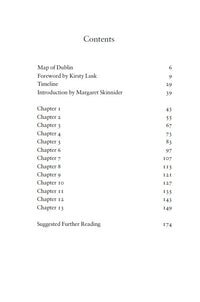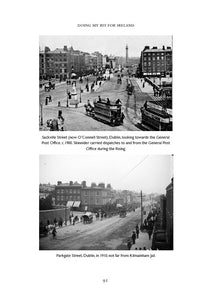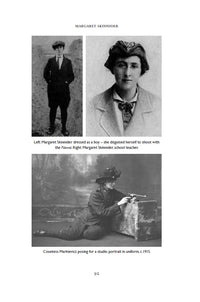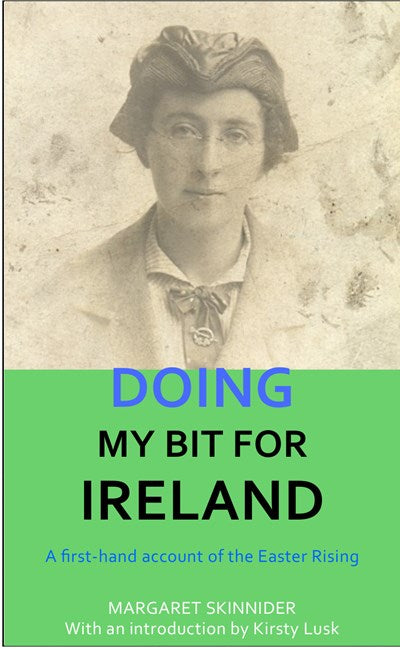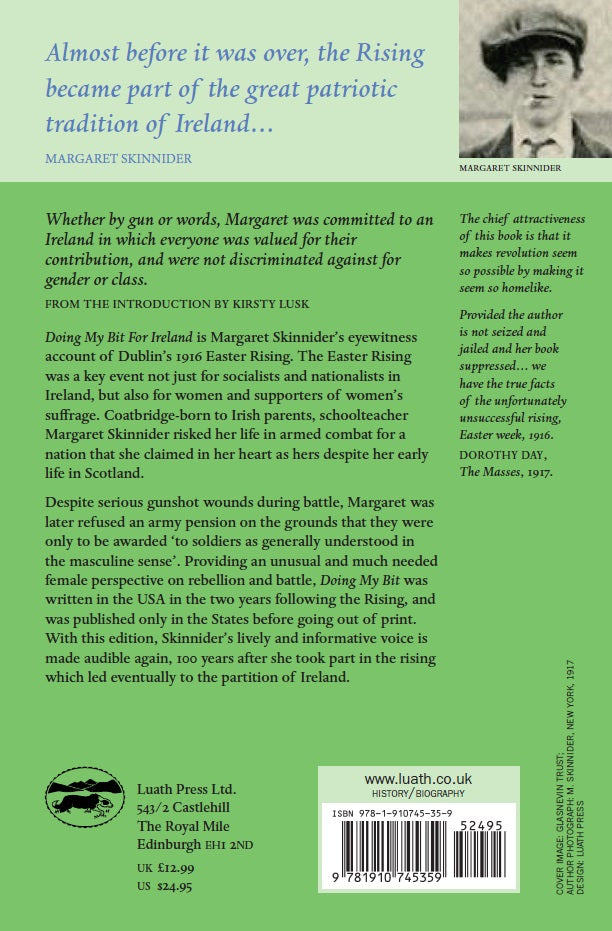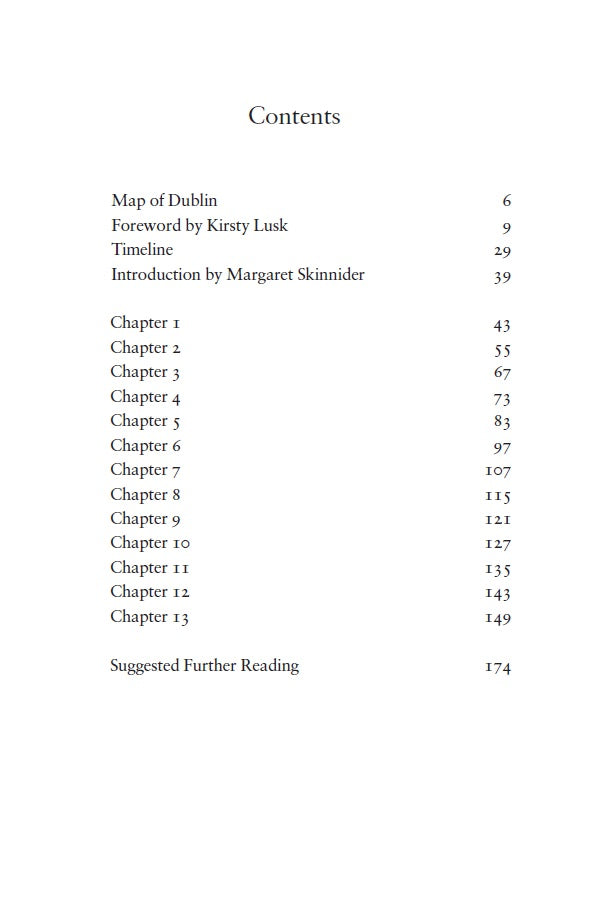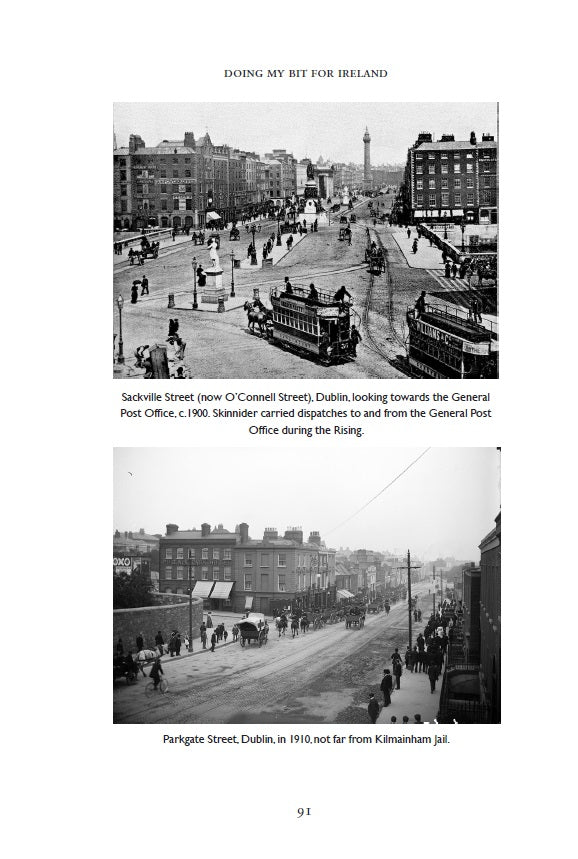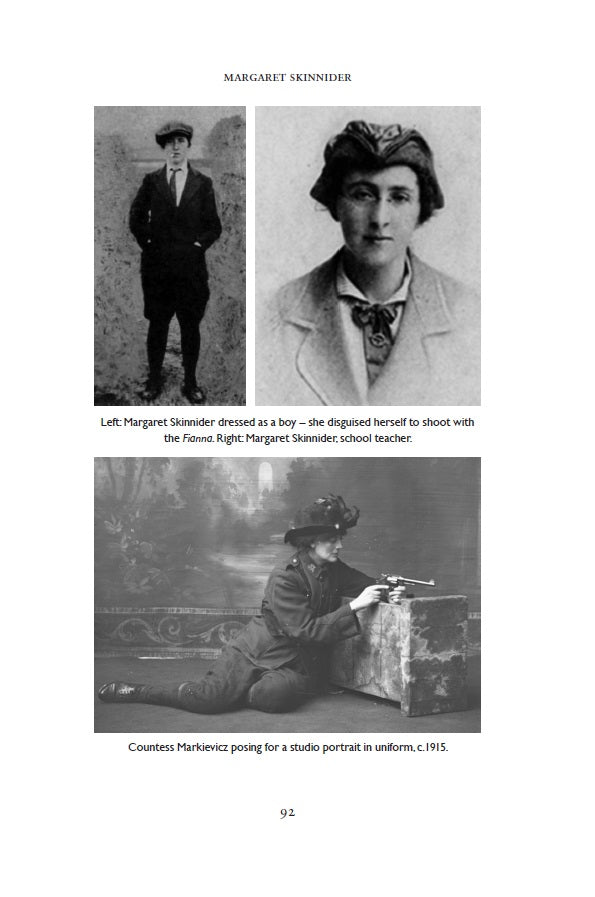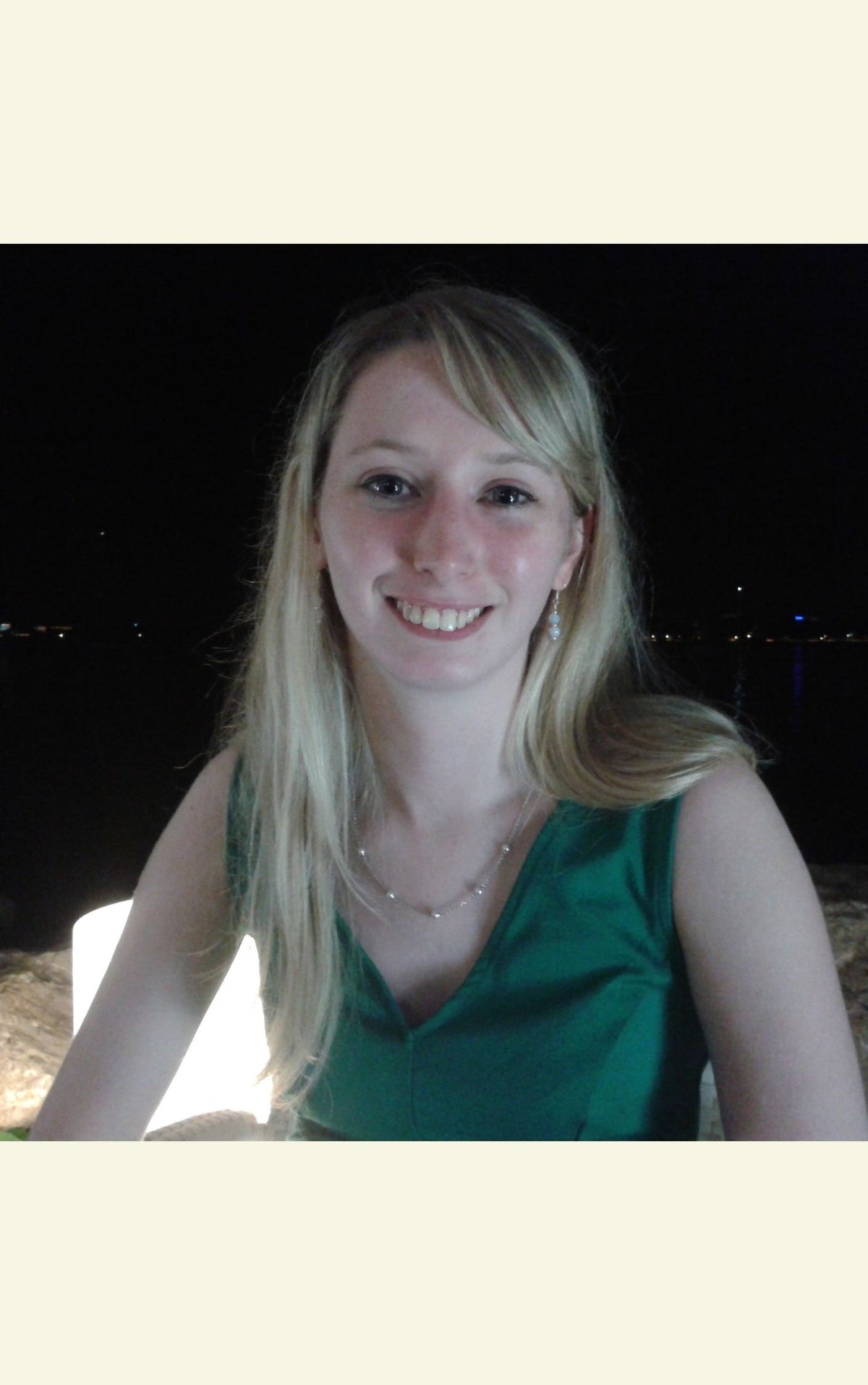Doing My Bit For Ireland
- Regular
- £8.99
- Sale
- £8.99
- Regular
- £8.99
- Unit Price
- per
Click here to learn about our Ebooks.
About the Book:
Almost before it was over, the Rising became part of the great patriotic tradition of Ireland…
Margaret Skinnider
Whether by gun or words, Margaret was committed to an Ireland in which everyone was valued for their contribution, and were not discriminated against for gender or class. (from the Introduction by Kirsty Lusk)
Published in the UK for the first time in this landmark Easter Rising centenary edition, with introduction and footnotes by Kirsty Lusk, Doing My Bit For Ireland is Margaret Skinnider’s eyewitness account of Dublin’s 1916 Easter Rising. The Easter Rising was a key event not just for socialists and nationalists in Ireland, but also for women and supporters of women’s suffrage. Coatbridge-born to Irish parents, schoolteacher Margaret Skinnider risked her life in armed combat for a nation that she claimed in her heart as hers despite her early life in Scotland.
Despite serious gunshot wounds during battle, Margaret was later refused an army pension on the grounds that they were only to be awarded ‘to soldiers as generally understood in the masculine sense’. Providing an unusual and much needed female perspective on rebellion and battle, Doing My Bit was written in the USA in the two years following the Rising, and was published only in the States before going out of print. With this edition, Skinnider’s lively and informative voice is made audible again, 100 years after she took part in the rising which led eventually to the partition of Ireland.
About the Author:
MARGARET SKINNIDER was born in Coatbridge, Lanarkshire, in 1893. She trained as a maths teacher and moved to Glasgow. While there, she became involved with Cumann na mBan, a women’s organization founded in Dublin in 1914, and the women’s suffrage movement. She also learned to shoot at a rifle club. She made many trips to Ireland, sometimes smuggling detonators and wires for bombs under her clothes. During the rising Skinnider performed various roles, including scout, messenger, and sniper. She was ultimately shot while attempting to burn down some houses to cut off the British retreat. She was arrested, but due to her injuries was permitted to stay in hospital, from which she escaped and fled to Scotland. Later that year, she left for New York, where she wrote this book as well as touring and fundraising for the republican cause. She later returned to Ireland, where she spent some time in prison during the War of Independence. Her later life was spent teaching, and she never stopped fighting for the rights of women. She died in Glenageary in 1971.

KIRSTY LUSK is a doctoral candidate at the University of Glasgow. She received her mPhil in Irish Writing from Trinity College Dublin and holds an ma (Hons) in English Literature from the University of Glasgow. She is currently researching Scottish-Irish connections in the late 19th and early 20th century from a literary perspective in order to explore the legacy of independence, equality and commemoration within a comparative Irish-Scottish framework.

